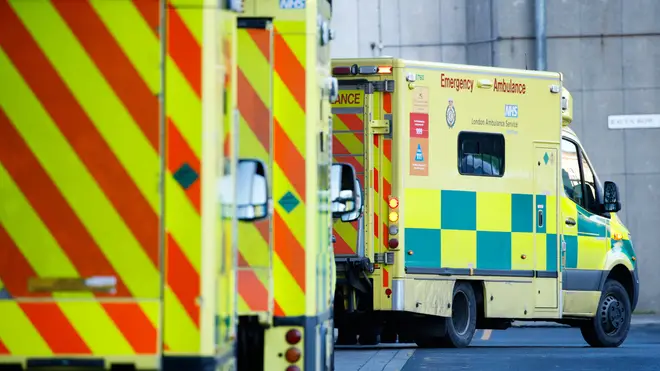
Jim Diamond 1am - 4am
15 July 2021, 00:01 | Updated: 15 July 2021, 00:45

Experts have warned the NHS needs to prepare for a harsh winter, as a report shows that 60,000 people could risk dying from flu.
The report from the Academy of Medical Sciences said that a mix of Covid-19, flu and respiratory syncytial virus (RSV), could put severe strain on the NHS in winter.
Experts explained that, if left unchecked, the flu season could be particularly deadly, with statistics from the report predicting that there could be almost double the hospital admissions and deaths compared to a 'normal' year - meaning between 15,000 and 60,000 people could be at risk of dying.
Measures could be put in place to help mitigate the risks, including an enhanced flu jab programme and rapid testing.
A widespread flu vaccination campaign is also taking place this year for over 50s.
The report stated that there were still high levels of uncertainty about how much it would affect the health service.
Lockdowns in place throughout 2020 meant a lot of respiratory viruses were kept away, but concerns over population immunity have since been raised as a result.
With over five million already on the waiting list, there could potentially be an ongoing backlog of care for the NHS, alongside staff shortages and reduced bed capacity.
Read more: NHS waiting list could rise to 13 million, Sajid Javid warns
Read more: Double-jabbed NHS staff could be exempt from Covid-19 app self-isolation

James O'Brien's epic take on Covid rules and mixed messages
Professor Sir Stephen Holgate - chair of the Expert Advisory Group which wrote the report - said: "There are four main challenges: firstly a surge in respiratory viruses could cause wide-spread ill health and put pressure on the NHS.
"Secondly, we're dealing with a third wave of Covid-19 and multiple outbreaks and the NHS has got to catch up with the backlog that it has accumulated over the last 15 months or so, and that's going to be a real challenge.
"Thirdly, the NHS is already under pressure, so is likely not to be able to cope with these winter challenges going forward.
"Finally the worse physical and mental health within the UK population due to the pandemic."
He added: "Society as a whole will have learned from the last 15 months that it isn't acceptable that (we had) all these respiratory viruses washing around in the winter and nearly closing our National Health Service.
"If there are things we should do to prevent transmission we should do that. Even if it means wearing masks and respecting each other's space."
Read more: NHS facing 'perfect storm' if flu and Covid surge amid backlog of cases

'There are NHS doctors and nurses experiencing PTSD symptoms due to Covid'
Professor Dame Anne Johnson, president of the Academy of Medical Sciences and Expert Advisory Group member, said people that had been infected should "stay out of the way".
"We're not saying we're about to have the worst winter ever, we're saying we have got a bunch of uncertain things that could hit us in winter that we need to think about mitigating now," she said.
"I hope we will take forward some of these behavioural changes as a society.
"When you're sick, stay out of the way because that's actually when you're most infectious, get your test - if you have got Covid you need to continue with that careful self-isolation."
An NHS spokesperson said: "NHS staff have worked tirelessly throughout the pandemic responding to increased demand by expanding critical care capacity by 50 per cent in hospitals, managing admissions through mutual aid and working with the independent sector.
"And ahead of winter, the NHS will continue with tried and tested plans to support hospitals so that they can continue to offer patients the care they need while restoring routine operations back to pre-pandemic levels and vaccinating the country against Covid."
This comes as the NHS announced a boost to ambulance staff numbers ahead of winter.
Ambulance trusts are set to be awarded £55 million to help alleviate pressures.